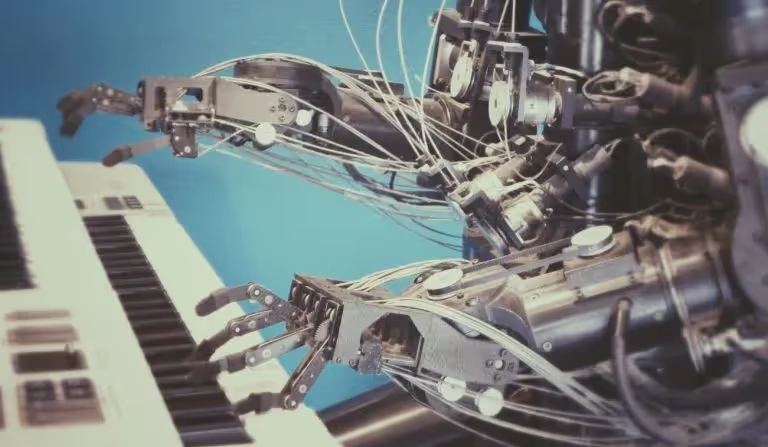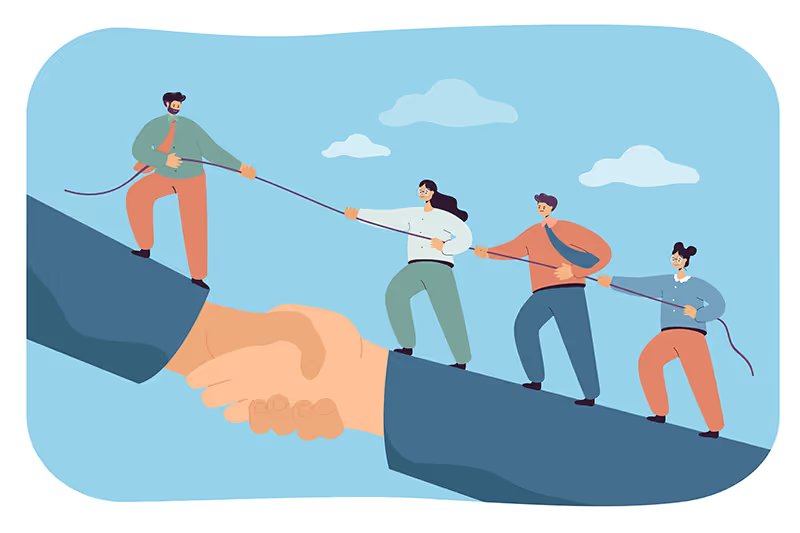By just about every measure, artificial intelligence is revolutionizing the way we do work. White House data even indicate that a large majority of jobs could cease to exist due to the move toward automation.
During these tumultuous times, the question on many leaders’ minds is how to adapt to the AI revolution. One of the answers, based on the leading research, is growth mindset.
Accenture recently identified growth mindset as “one of the 10 intelligences that will gain prominence in the AI workplace.” And a research report from Goldsmiths, University of London, determined that growth mindset allows organizations to “maximize the benefits from AI.”
What fewer leaders may grasp are the tools to build a growth mindset of their own.
Digital transformation on the brain
There’s a great deal of evidence showing that leaders already recognize the importance of growth mindset for making big changes.
In a recent industry research project, the NeuroLeadership Institute found digital transformation to be the leading business driver for organizations adopting a growth mindset. The report, entitled “Growth Mindset Culture,” showed that 38% of organizations in the sample relied on growth mindset for such purposes.
What these leaders understand is the insight that big changes require an open mind.
Change — in particular the fundamental changes sparked by AI and automation — can easily cause leaders and employees fall into a “threat response.” This is the psychological state of being resistant and closed-off to new information. To experts, it’s known as a “fixed mindset.”
In contrast, people with a growth mindset believe the challenges they encounter are opportunities to learn, rather than obstacles. Their deep-seated conviction that it’s all about improving rather than proving themselves helps them be more open to new developments, recover quicker from mistakes and failures, and show tenacity and grit.
Leaders with a growth mindset will be better equipped to face AI-related challenges head-on, rather than shy away from them and admit defeat.
How to use growth mindset to adapt
Scientists and consultants at the NeuroLeadership Institute have been helping organizations develop growth mindset cultures for many years. When it comes to adapting to the world of AI, here are three central habits that can help organizations get started:
Experiment: We know that the brain, a certainty-craving machine, feels more comfortable sticking with the status quo, rather than exploring something new. However, our life with AI is and will continue to be one of experimentation and exploration. Try to encourage humility in yourself and your teams, so that you can see failures as necessary learning opportunities and embrace experimentation as a continuous learning journey.
Focus on progress rather than perfection: Even though the speed of technological progress requires us to be at peace with constant incremental enhancements, our brains can be in the way due to the tendency for “snapshot thinking”. By zooming in on “snapshots of our successes” we tend to focus too much on perfection rather than continuous improvement, an almost absurd and obsolete expectation.
Accept that real progress with AI systems is still not that easy to measure, and humans will continue to wrestle with a lot of unanswered questions for years to come. We recommend a deep focus on continual progress, rather than excellence and perfection.
Learn from others: Increasing levels of teamwork and cooperation in human teams, as well as the trends towards more collaboration between humans and machines highlight the importance of learning from the others. But our brains can make it surprisingly hard for people to be open to learn from others. Due to experience biases, the unconscious assumption that what we see is all there is.
Be aware that everyone’s past experiences and expectations tint our perception of reality, and consciously role modeling a genuine interest in the knowledge and expertise of others is key. One of the best ways to role model learning from others is to develop the practice of regularly asking for feedback.
Growth mindset doesn’t mean that people can perform endless amounts of work, or that anyone can adapt to any situation. But as long as leaders prioritize having the right mindset, organizations will be better-suited to face any uncertainty the future may hold.




.avif)



